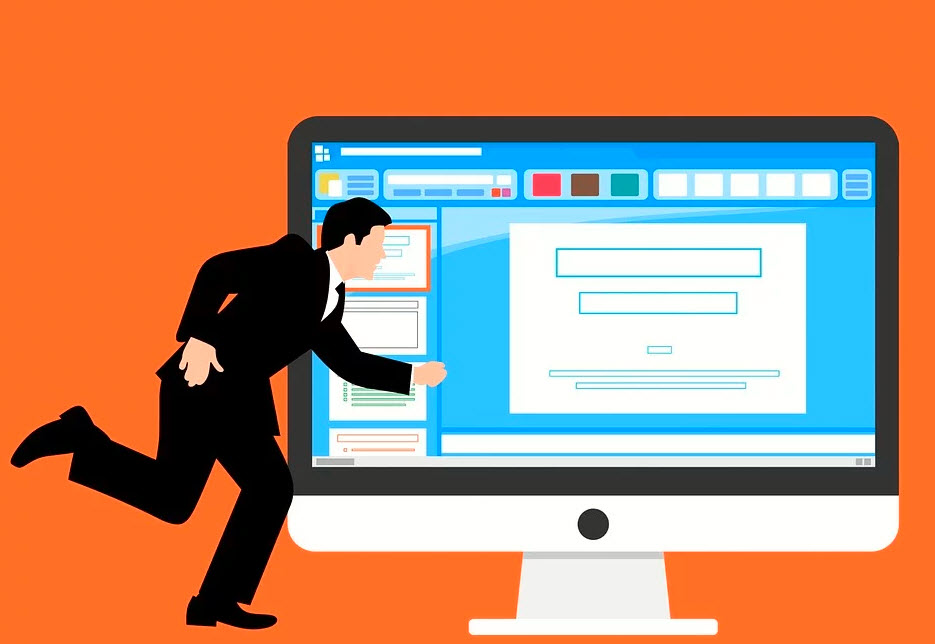
The rapid evolution of healthcare technology stands as a cornerstone in the ongoing transformation of patient care. Revolutionary advancements in technology are reshaping traditional healthcare paradigms, propelling the industry towards a future where patient care is more personalized, efficient, and accessible.
This article delves into the multifaceted ways innovative healthcare technology is revolutionizing patient care across diverse facets of the healthcare landscape.
Telemedicine: Redefining Remote Care Delivery
Telemedicine, coupled with Electronic Medical Record (EMR) software, has emerged as a pivotal force in transforming remote care delivery, revolutionizing how patients access healthcare services.
Through telehealth platforms integrated with advanced EMR software, individuals can seamlessly connect with healthcare providers, transcending geographical barriers and overcoming logistical constraints. This evolution in remote care delivery has not only facilitated virtual consultations but has also expanded access to specialized medical expertise previously confined to specific regions.
By leveraging telemedicine and EMR software, patients in rural or underserved areas gain unprecedented access to specialists, enabling them to receive timely, expert care without the need for extensive travel or prolonged waiting periods.
This integrated approach ensures that patient data is efficiently managed, shared securely among healthcare professionals, and contributes to a more comprehensive and streamlined healthcare experience.
Moreover, the integration of remote monitoring tools within telemedicine has amplified the scope of healthcare beyond clinic walls. Real-time monitoring of patient health metrics through wearable devices or at-home monitoring kits allows for continuous tracking and proactive management of chronic conditions.
This proactive approach empowers patients to actively participate in their care while enabling healthcare providers to intervene swiftly in case of any anomalies, thereby potentially preventing complications and hospitalizations. As telemedicine continues to evolve, its impact on remote care delivery proves to be instrumental in ensuring healthcare accessibility and quality across diverse populations and geographical locations.
Telehealth Platforms: Facilitating Remote Consultations
Telehealth platforms have become indispensable in modern healthcare, serving as powerful tools that facilitate seamless remote consultations between patients and healthcare providers. People can discuss about supplements also. If you want to use nattokinase supplement for your heart, you can discuss the same with them.
These platforms offer a bridge across geographical barriers, allowing individuals to access healthcare services from the comfort of their homes. By leveraging video conferencing, real-time chat functionalities, and secure data transmission, telehealth platforms enable patients to engage in virtual consultations, seeking medical advice, diagnosis, and treatment plans remotely.
This revolution in remote care delivery not only enhances accessibility for patients in remote or underserved areas but also provides a convenient alternative for routine check-ups and follow-up visits. Telehealth platforms not only offer convenience but also play a crucial role in ensuring continuity of care, enabling timely interventions and fostering a patient-centric approach to healthcare delivery.
Virtual Care Expansion: Enhancing Access to Specialists
The expansion of virtual care has significantly enhanced access to specialized healthcare services, connecting patients with specialists regardless of geographical constraints. Through virtual care platforms, individuals gain access to a diverse array of medical experts and specialists, eliminating the traditional barriers of distance and travel.
Patients can schedule virtual appointments with renowned specialists, ranging from neurologists to dermatologists, seeking specialized consultations and expertise without the need for lengthy commutes or prolonged wait times.
This expansion of virtual care not only broadens the spectrum of available healthcare services but also ensures that patients receive timely and expert guidance, optimizing the management of complex medical conditions while democratizing access to specialized care for individuals regardless of their physical location.
Remote Monitoring Tools: Real-Time Patient Health Tracking
Remote monitoring tools have revolutionized patient care by enabling real-time tracking of health metrics outside of traditional healthcare settings. These tools, often integrated into wearable devices or home monitoring kits, allow for continuous and remote monitoring of vital health parameters.
Patients can effortlessly track metrics such as heart rate, blood pressure, glucose levels, and more, providing healthcare providers with valuable insights into their health status. This real-time data transmission empowers proactive healthcare management, enabling timely interventions and personalized adjustments to treatment plans based on the evolving health trends observed through continuous monitoring.
Remote monitoring tools not only facilitate early detection of potential health issues but also promote patient engagement and adherence to care plans, fostering a more comprehensive and patient-centric approach to healthcare delivery.
Artificial Intelligence (AI) in Healthcare
Artificial Intelligence (AI) stands as a transformative force reshaping the landscape of healthcare delivery, offering unprecedented capabilities to enhance diagnostics, treatment planning, and patient care.
Within healthcare, AI-powered diagnostic tools exhibit remarkable accuracy and speed, augmenting healthcare providers’ capabilities in interpreting medical imaging, pathology samples, and diagnostic tests.
These AI-driven systems analyze vast datasets with precision, swiftly identifying patterns and anomalies that might elude human perception. Consequently, this not only expedites the diagnostic process but also improves its accuracy, reducing the margin for errors and oversights in medical interpretations.
Moreover, predictive analytics fueled by AI algorithms have revolutionized healthcare by forecasting disease patterns and patient outcomes. By leveraging historical patient data, AI models can predict potential health risks, allowing healthcare providers to adopt a proactive approach to patient care.
These predictive insights enable early interventions, personalized treatment plans, and preventive measures tailored to individual patient needs, thereby potentially mitigating risks and improving health outcomes.
Additionally, AI-assisted decision support systems offer healthcare professionals valuable insights and recommendations derived from vast repositories of medical knowledge and evidence-based practices, aiding in clinical decision-making and treatment planning.
As AI technology continues to advance, its integration into healthcare systems promises a future where diagnoses are more precise, treatments are more targeted, and patient care is increasingly personalized and effective.
- AI-Powered Diagnostics: Improving Accuracy and Speed
- Predictive Analytics: Anticipating Disease Patterns and Outcomes
- AI-Assisted Decision Support Systems: Enhancing Clinical Decision-Making
Wearable Technology: Empowering Patient Engagement
Wearable technology has emerged as a catalyst in empowering patients to actively engage in their healthcare journey. These devices, ranging from smartwatches to health monitoring wearables, enable individuals to monitor various health metrics in real time, fostering a proactive approach to personal health management.
By continuously tracking parameters such as heart rate, sleep patterns, physical activity, and even blood glucose levels, these wearables provide users with valuable insights into their health status, promoting self-awareness and facilitating informed lifestyle choices.
Patient-Generated Health Data (PGHD), facilitated by wearable devices, plays a pivotal role in transforming healthcare dynamics. The data generated by these wearables not only allows individuals to track their progress and adherence to health goals but also equips healthcare providers with a more comprehensive understanding of the patient’s health status between clinical visits.
This continuous flow of data enables healthcare professionals to make informed decisions, customize treatment plans, and offer personalized recommendations, thus fostering a more collaborative and patient-centric approach to healthcare.
In chronic disease management, wearables play a crucial role in providing patients with tools for proactive management, enabling them to detect potential health issues early, leading to better disease management and improved overall well-being. As wearable technology continues to evolve, its integration into healthcare engenders a paradigm shift, placing individuals at the forefront of their own health and wellness journey.
- Health Monitoring Wearables: Tracking Vital Health Metrics
- Patient-Generated Health Data (PGHD): Empowering Self-Management
- Wearables in Chronic Disease Management: Promoting Proactive Healthcare
Blockchain in Healthcare: Securing Data and Enhancing Transparency
Blockchain technology has emerged as a disruptive force in the healthcare sector, offering robust solutions for data security, integrity, and transparency. The decentralized and immutable nature of blockchain ensures that sensitive patient data is securely stored and shared across the healthcare ecosystem.
By utilizing cryptographic techniques, patient records stored on the blockchain are safeguarded against unauthorized access and tampering, ensuring the integrity and confidentiality of healthcare information. This heightened security protocol not only protects patient privacy but also mitigates the risk of data breaches and fraudulent activities, which are prevalent concerns in the healthcare industry.
Moreover, blockchain technology holds the potential to streamline health records, fostering interoperability and enhancing transparency within the healthcare system.
Through a shared and distributed ledger system, healthcare providers can securely access and update patient records, facilitating seamless data exchange across different healthcare entities. This interoperability leads to improved care coordination, as healthcare professionals gain access to comprehensive and up-to-date patient information, thereby reducing redundancies, enhancing treatment accuracy, and improving patient outcomes.
Additionally, blockchain-enabled smart contracts in supply chain management enhance transparency in drug distribution, ensuring the authenticity and traceability of pharmaceutical products from manufacturers to end-users. The utilization of blockchain in healthcare signifies a pivotal shift towards a more secure, transparent, and efficient healthcare ecosystem, ultimately benefiting both patients and healthcare providers alike.
- Data Security and Interoperability: Safeguarding Patient Information
- Streamlining Health Records: Enhancing Access and Accuracy
- Supply Chain Management: Ensuring Transparency in Drug Distribution
Robotics and Automation in Healthcare
Robotics and automation are revolutionizing the healthcare landscape by introducing unparalleled precision, efficiency, and innovation across various facets of medical practice. Surgical robotics, for instance, has redefined the field of surgery, enabling surgeons to perform intricate procedures with enhanced precision and minimally invasive techniques.
These robotic systems offer greater dexterity and accuracy, allowing surgeons to access anatomical areas that were previously challenging, leading to reduced trauma, shorter recovery times, and improved patient outcomes. The integration of robotics in surgical procedures not only elevates the standard of care but also opens avenues for advanced surgeries that were once deemed too complex or risky.
Beyond the operating room, automation plays a crucial role in streamlining healthcare operations, optimizing workflow efficiency, and reducing human errors. Automated systems manage administrative tasks, such as appointment scheduling, billing, and inventory management, allowing healthcare professionals to focus more on patient care. These systems not only enhance operational efficiency but also ensure accuracy and compliance with regulatory standards.
Additionally, robotics in rehabilitation and physical therapy has transformed the landscape of patient recovery. Robotic-assisted therapies offer personalized rehabilitation programs, facilitating repetitive and precise movements crucial for restoring motor functions in patients recovering from injuries or neurological conditions. The integration of robotics and automation in healthcare represents a paradigm shift, offering a spectrum of innovative solutions that enhance patient care, streamline operations, and pave the way for advanced medical
- Surgical Robotics: Precision and Minimally Invasive Procedures
- Automation in Healthcare Operations: Optimizing Workflow Efficiency
- Robotics in Rehabilitation: Advancing Physical Therapy
Conclusion
Innovative healthcare technology is a driving force behind the evolution of patient care, ushering in an era of unprecedented advancements and opportunities. The integration of telemedicine, artificial intelligence, wearable technology, blockchain, and robotics is revolutionizing healthcare delivery, empowering both patients and healthcare providers.
As these technologies continue to evolve, their seamless integration promises a future where patient care is not only more efficient but also more personalized and accessible than ever before.
You may also like:- Unleashing the Flexibility of Windows VPS Hosting
- Platform Ladders in Warehouse Automation: Integration, Benefits, and ROI Analysis
- How Green Loans Are Revolutionizing Financing for Sustainable Tech Solution
- How Annuity Plans Can Secure Your Retirement Goals
- Why Proxies Are Vital for Privacy, Security, and Accessibility
- Why Proxy-Sale.com is the Right Choice for Your Proxy Needs
- ASPICE-Compliant Software Development: Ensuring Quality in the Automotive Industry
- Tips for Picking the Best Software Development Partner
- PAFI SUMEDANG UTARA : Making Achievements and Contributions in the Health Sector
- Reactive Dog Trainer in Denver: Preventive Approach to Reactivity







